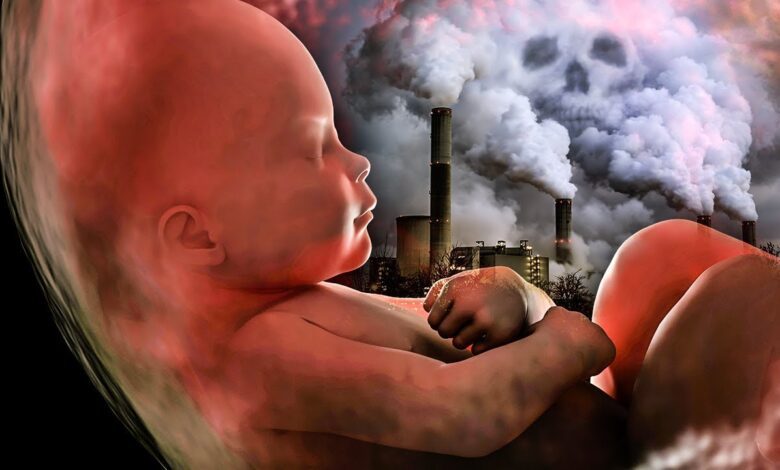Toxic air pollutants found in brain & lungs of unborn infants: Study
Black carbon particles are inhaled by mothers during the gestation period and passed on to foetuses through the bloodstream or placenta.

In a worrying discovery, a study has shown that air pollution is affecting babies long before they even take their first breath. Toxic air pollutants have been found in the brain, lungs and liver of unborn infants, posing lifelong health consequences. Thousands of black carbon particles were found in each cubic millimetre of tissue.
Via the study, researchers from the University of Aberdeen and Hasselt University, Belgium, were looking to determine whether those particles could reach a foetus during pregnancy – and made the worrying discovery that they can.
These pollutant nanoparticles, called black carbon or soot particles, come from gas and diesel engines, as well as coal-fired power plants and other uses of fossil fuel. The particles are inhaled by mothers during the gestation period and passed on to the vulnerable foetuses through the bloodstream or placenta as early as the first trimester. From there, the pollutants invade the child’s organs, like its brain, liver and lungs. These not only cause inflammation in the body but also act as a carrier of toxic chemicals.
While polluted air has already been known to strongly correlate with increased miscarriages, premature births, low birth weights, and disturbed brain development, the new study sheds direct light on how that harm may be caused.
“We have shown for the first time that black carbon nanoparticles not only get into the first and second trimester placenta but then also find their way into the organs of the developing foetus,” said Prof Paul Fowler, at the University of Aberdeen in Scotland.
“What is even more worrying is that these particles also get into the developing human brain,” he said. “This means that it is possible for these nanoparticles to directly interact with control systems within human foetal organs and cells.”
Prof Tim Nawrot at Hasselt University in Belgium, who co-led the study, said, “Air quality regulation authorities should recognise this air pollution transfer during gestation and act to protect the most susceptible stages of human development.”



